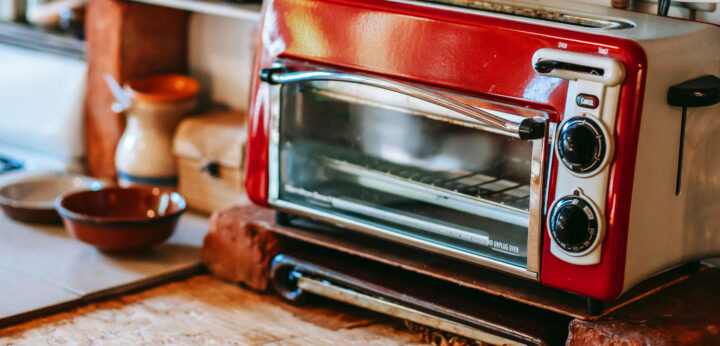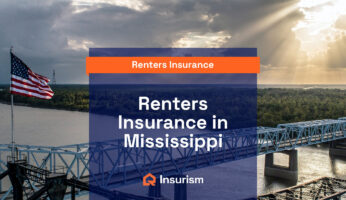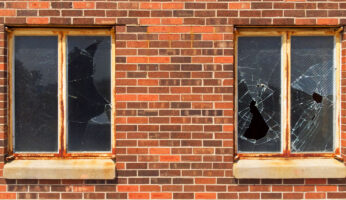Table of Contents
When does renters insurance cover broken appliances?
When your appliances break down as a result of a covered peril, renters insurance will cover the loss up to your policy’s limit. For example, if a short-circuit fries your toaster, your insurance company will reimburse you for it.
Common covered perils
Some of the most common covered perils are:
- Theft
- Vandalism
- Fire
- Explosion
- Leaks or overflow of water
- Weather damage (lightning, wind)
- Smoke damage
- Lightning
- Short circuits
- Burst pipes
- Frozen pipes
Limitations on power surge coverage
Some policies feature special limits on power surge coverage. Many providers will only cover up to $1,000 in damage caused by “sudden increases or decreases in artificially generated electrical current,” i.e. power surges.
This varies by provider, so check your policy to see if any limits like this apply.
Sudden malfunctions aren’t covered by default
Sometimes appliances just break for no apparent reason. If your washing machine malfunctions and the damage wasn’t obviously caused by a “peril,” e.g. a fire or a power surge, your plan probably won’t cover it by default.
To protect yourself, you might be able to add equipment breakdown coverage to your renters insurance policy at an additional cost. This is an addition to your policy (called a rider) that will cover your appliances if they experience “sudden internal mechanical or electrical failure.”
If your policy has any other exclusions that apply to your appliances (if it doesn’t cover power surges, for instance), an equipment breakdown rider will cover those, too.
Appliances that often break down
Some appliances are more prone to breaking than others, including:
- Washing machines
- Refrigerators
- Dryers
- Dishwashers
- Vacuum cleaners
If you own many of the appliances listed above, getting equipment breakdown coverage might be a smart idea.
Does renters insurance cover my roommate or landlord’s appliances?
No. Renters insurance doesn’t cover your roommate or landlord, so appliances that belong to them aren’t protected by your policy.
Your roommate should get a separate renters insurance policy for their stuff. Your landlord’s appliances will probably already be covered by their landlord’s insurance policy.
When does renters insurance not cover appliances?
There are four circumstances when renters insurance doesn’t cover your appliances:
- When they’re damaged by excluded perils
- When they break due to negligence or misuse
- When they break due to everyday wear and tear
- When they technically belong to your landlord
1. They’re damaged by excluded perils
Although renters insurance protects your appliances from most common household accidents, there are some perils that it doesn’t cover, including earthquakes and floods.
In the unfortunate (and hopefully unlikely) event that an earthquake or flood destroys your appliances, your policy won’t reimburse you for your loss.
To protect yourself, you can ask your insurer whether they offer special riders or separate insurance plans that cover floods or earthquakes. You’ll have to pay for them, but it’s worth doing if you live in an area that experiences a lot of natural disasters, like California or Florida.
Excess groundwater and rain
Groundwater can seep into your property through the basement during periods of heavy rainfall and damage appliances that are on or near the floor. Since groundwater typically isn’t a covered peril, your renters insurance won’t protect you against these losses.
2. They break down due to negligence or misuse
If you use or store your appliances improperly, your provider won’t pay for any ensuing damage.
For example, if you warm up your food in a metallic dish that’s not microwave-friendly, you’re responsible if it sparks or catches fire and ruins your microwave.
3. They break down due to everyday wear and tear
Wear and tear isn’t covered by renters insurance because it’s inevitable, and insurance is meant to protect you from sudden and unexpected losses. If your appliance has an expected lifespan of 6 to 8 years, you’re responsible for replacing it when it reaches the end of that period.
4. They belong to your landlord
As mentioned, if your refrigerator came preinstalled in your apartment and belongs to your landlord, your renters insurance policy won’t cover it.
It doesn’t need to cover it — your landlord is responsible for maintaining and replacing the appliances in your home, and has their own insurance to cover the costs.
How much will my provider pay for my broken appliance?
If your appliance was damaged by a covered peril, your provider will reimburse you for it up to a maximum amount that depends on two factors:
- Your policy type
- Your policy’s coverage limit
Your policy type
There are two types of renters insurance policies: replacement cost and actual cash value.
If you have a replacement cost policy, your insurer will pay you back the amount of money it would take to purchase a brand-new replacement for your appliance. If your toaster gets stolen (hey, it could happen), you’ll receive a check for the retail value of a new toaster of that make and model.
Conversely, if you have an actual cash value policy, you’ll only receive the amount that your fridge was worth when you lost it. In other words, you’ll receive approximately what you’d have gotten if you sold it secondhand.
Note that whatever type of policy you have, you’ll still have to pay a fixed amount yourself, called your renters insurance deductible.
Your policy’s limit
This is the amount of property coverage you chose when you purchased your policy. Most people opt for $15,000 to $30,000, but the right amount of coverage for you depends on the total value of your belongings.
If you have any high-end appliances, such as a state-of-the-art oven, your policy might also feature a lower coverage limit (known as a sub-limit) that applies specifically to them. You might be able to add extra coverage for your expensive electronics by purchasing a rider.
Does renters insurance cover damage caused by broken appliances?
Yes, in many cases renters insurance covers damage caused by broken appliances. For instance, it covers both spoiled food and water damage.
Spoiled food
If you’ve just stocked up your fridge with groceries and it decides to break down on you, don’t panic. Renters insurance covers food loss when a power failure causes your refrigerator or freezer to break down.
However, many policies stipulate that they only cover spoiled food if you take reasonable measures to save it. In other words, you can’t just let your food sit there and spoil if you have other options (like transferring it to a different fridge or a cooler).
It’s also important to remember that your policy only covers you. If your roommate’s food also spoils, they won’t be reimbursed unless they have their own plan or you add them as an additional insured to your renters insurance policy (which we don’t recommend).
Water damage
Renters insurance also covers water damage caused by leaky appliances. If your washing machine or dishwasher dribbles water all over your rug, your policy will reimburse you for the damage.
How to file a renters insurance claim for an appliance
If your appliance gets damaged or stolen, you’ll need to file a renters insurance claim, just like you would for any other piece of personal property.
Luckily, the process is simple and straightforward:
1. Document your loss
If your appliance was stolen or vandalized, you need to file a police report first to legitimize your claim. If your appliance was damaged in a fire or another type of disaster, take photos or a video to provide to your insurer.
Make sure to document everything. If your fridge breaks, don’t just photograph the fridge — photograph the food inside it, too.
2. Inform your landlord
You should tell your landlord about the damage right away, especially if it was something severe. If a power surge fried your dishwasher, it might have also damaged electrical systems elsewhere that your landlord is responsible for fixing.
3. Contact your insurance provider
File your claim as soon as possible (within 48 to 72 hours). You’ll probably be able to file via your insurer’s website or mobile app, but if you have any trouble with the process, you can call an insurance agent or visit their office in person.
4. Submit your documents
When you file your claim, submit any evidence that you have, such as photos, receipts, and a copy of your police report. Your insurer will provide you with paperwork that you need to fill out and return to finalize your claim. Many renters worry that they don’t have the receipts for the items they lost. While you don’t need receipts to make a claim, they can be helpful.
Your insurance provider might send an investigator to your home to inspect the loss and make an assessment. If your claim is approved, they’ll reimburse for the loss, but remember that you’ll still have to pay your deductible (a fixed amount that you’re responsible for, which is usually around $500).
Related Questions
- What is guest medical coverage in renters insurance?
- What is a sub-limit in renters insurance?
- Does renters insurance cover home-based businesses?
- Does renters insurance cover gold or silver bullion?
- What does "dependent in the care of" mean in renters insurance?
- Does State Farm renters insurance cover hotel stays?






